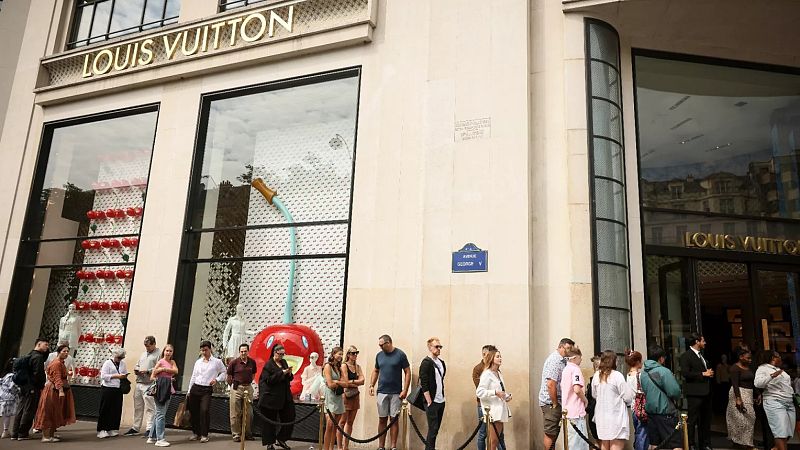
The Rise of Luxury Tourism in the EU
Britons are increasingly choosing to spend their money on luxury goods in European cities like Paris and Milan, rather than in London. This shift is driven by the availability of VAT-free shopping for UK visitors in the EU since January 2021, following Brexit. The numbers behind this trend are impressive and reveal a significant change in consumer behavior.
According to a recent report by the Association of International Retail (AIR), British consumers spent €854 million (£730mn) on VAT-free shopping in the EU in 2024. This is a five-fold increase from €169 million in 2021. The report highlights that this is not just about spending a bit more; it's about a new market for luxury-led tourism that includes additional expenses on hotels, travel, and dining.
When the UK left the European Union, its shoppers became non-EU visitors, which made them eligible for VAT-free shopping. Under the EU’s VAT directive, retailers must offer shoppers the option to reclaim at least 15% of the cost of an item, with most countries applying an average rate of 20%. This can be especially beneficial when purchasing high-end items.
For example, consider the Loewe Puzzle Bag, which retails for around €3,600 for the small version and €4,200 for the large one. With VAT returns, buyers could get back €700 for the small bag and €840 for the large one. This makes a weekend trip to the continent more appealing for British shoppers.
The AIR report also points out that this trend is costing the UK tourism sector. According to the Paris Tourism Office, there was a 44% spike in UK visitors to Paris in 2023, the highest increase among European tourists. This surge in luxury tourism has had a noticeable impact on the UK’s domestic market.
No VAT-Free Benefits in the UK
Since leaving the EU in January 2021, the UK abolished its previous VAT scheme, citing cost and complexity. This decision made the UK the only major global shopping destination that does not offer VAT-free shopping to international tourists. The only way to buy VAT-free goods in the UK is through online purchases shipped directly outside the country.
Northern Ireland, however, retains a VAT-free scheme. If an EU citizen buys goods there and flies out within three months, they can get their VAT tax returned upon departure. However, even airport duty-free stores have lost their VAT-free status, meaning UK travelers pay similar prices as they would at home for items like laptops, smartphones, or designer cosmetics. Alcohol and tobacco remain exceptions, as they can still be bought duty-free.
Luxury Retailers Are Frustrated
The UK’s luxury sector is unhappy with these changes. Walpole, the official body representing Britain's luxury industry, published a study in May stating that luxury exports to the EU were "up to 43% lower than they may have been without Brexit." In the fashion and accessories sector alone, Brexit caused a 64% loss.
This decline has led to a substantial "Brexit effect" on the industry, which supports over 450,000 jobs and contributes £14.6 billion (€16.8bn) to the Exchequer. British luxury brands are not only losing sales to European rivals but also seeing a slump in demand for UK-made goods across the EU and global markets.
The luxury industry has deep roots in Europe, with centuries of craftsmanship and artistry. Helen Brocklebank, CEO of Walpole, stated, “Luxury is a global phenomenon, but it calls the UK and Europe its home.” The EU currently produces 74% of global luxury goods, and 62% of those are exported outside the EU — a profit opportunity the UK is missing out on.
Brocklebank added that the British luxury sector has growth potential, projecting to reach £125bn (€144bn) by 2028. However, she emphasized that strong links and favorable trading with Europe remain essential for achieving this goal.
Challenges and Opportunities
British luxury brands face additional challenges beyond Brexit, including rising US tariffs and reduced consumer demand in China. Despite these hurdles, a YouGov poll shows that Britons are eager to spend on luxury. A 2024 study found that a quarter of Britons bought a luxury product in the previous year, with 45% of those shoppers happy to pay extra for premium brands.
More than half of luxury shoppers spent up to £500, while 9% spent over £5,000. Over a third of luxury shoppers said they plan to spend the same amount this year as they did last year. Until the UK government considers relaunching some form of VAT-free benefits, every transaction by a British cardholder in the EU could mean another missed sale at home.
